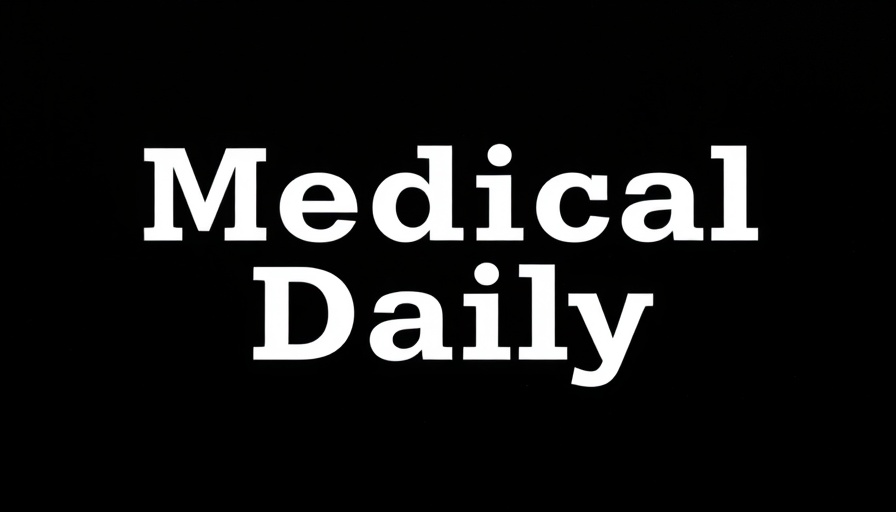
The Disturbing Intersection of Health Care and Legislation
A recent incident involving Florida Republican Rep. Kat Cammack has sparked a heated discussion about the implications of strict abortion laws on medical practices. Cammack experienced a life-threatening ectopic pregnancy in May 2024, just as Florida's six-week abortion ban took effect. This situation exposed significant fear among medical professionals who felt vulnerable under new legislation that emphasizes harsh penalties for those who assist in abortions or related medical treatments.
Medical Hesitation: A Life-threatening Dilemma
When faced with her ectopic pregnancy, Cammack required an injection of methotrexate to terminate the nonviable pregnancy. However, medical staff initially hesitated, fearing legal repercussions that could result from adhering to strict abortion laws. This illustrates a chilling effect that legislative measures can have on healthcare providers; they may prioritize avoiding legal trouble over immediate patient care. Fortunately, in Cammack's case, medical personnel eventually administered the required medication, thus averting a potential health crisis.
The Fallout of Fearmongering: A Political Narrative
Despite the serious nature of her medical situation, Cammack chose to pivot her narrative, blaming what she termed ‘fearmongering’ on the left, for causing unnecessary stress for healthcare practitioners. In her comments, she implied that abortion-rights advocates overstated risks associated with the new law, accusing them of skewing public perception and inciting panic among doctors. Her focus on the blame game, rather than the implications of the law itself, highlights how deeply entwined political agendas can affect personal health narratives.
Counterarguments from Reproductive Rights Advocates
Advocates for reproductive rights, such as Molly Duane from the Center for Reproductive Rights, counter Cammack's claims, arguing that the hesitance displayed by healthcare providers is rooted in clear signals from state regulators about stringent enforcement of the law. By emphasizing this fear, Duane argues, Cammack is following a long-established trend among anti-abortion factions that vilify medical professionals instead of addressing the systemic issues at hand.
The Broader Implications: Redefining Healthcare and Legal Boundaries
This incident raises critical questions about how legislation intersects with healthcare. The anxiety felt by practitioners underlines a new reality: medical decisions are heavily influenced by legal considerations. This can especially be seen in cases involving female reproductive health, where immediate care can be delayed, leading to potentially dangerous outcomes. It’s essential to understand the weight of such laws on real lives and the ethical tensions faced by physicians in these contexts.
The Personal Impact: Feeling Vulnerable in a Political System
For patients like Cammack, this incident sheds light on the complexities of navigating healthcare under restrictive laws. Many women could find themselves trapped in a web of political maneuvering, where their health is secondary to legislative agendas. As health activists strive for autonomy over their bodies, personal testimonies like Cammack's compel society to reflect on these moral and ethical crossroads.
Actionable Insights: Advocating for Patient-Centered Care
This incident encourages not just political commentators but also everyday citizens to become advocates for patient-centered healthcare. By engaging in dialogue around legislative implications and stressing the need for clarity in laws associated with reproductive rights, there is a unique opportunity to reshape the way health laws are written and enforced. Empowering individuals to speak out against restrictive policies could lead to improved healthcare access and clarity for medical practitioners.
Understanding the Risks: What This Means for Future Patients
As we navigate these complexities, it is vital to consider the long-term ramifications of how healthcare laws are structured and enforced. Patients deserve access to timely and appropriate care without the fear of legal repercussions. Advocating for clearer laws can not only help emergency situations like ectopic pregnancies but also ensure that healthcare providers can do their jobs without the constant fear of penalties.
In the midst of political turmoil, understanding the balance between legislation and healthcare is essential for ensuring the well-being of future generations. Educating oneself about these laws and advocating for change can make a significant difference in the landscape of healthcare, promoting a safer environment for both patients and providers alike.
 Add Row
Add Row  Add
Add 




Write A Comment